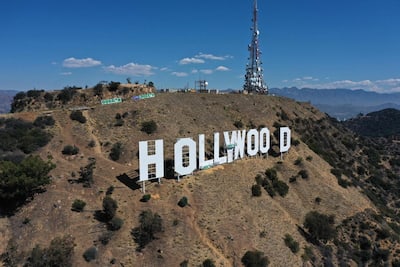Will Hollywood be able to put an end to its actors’ strike or will it plunge back into the turmoil that has paralyzed the sector in recent months? This is what is at stake in the vote closed Tuesday evening to validate or not the agreement obtained through a hard struggle between studios and actors.
• Read also: Relief in Hollywood, where actors will return to work
• Read also: End of the strike in Hollywood: “good news” for the filming industry in Quebec
• Read also: The next film “Karate Kid” will be filmed in Montreal in 2024
Although this ratification is widely seen as a formality, the industry seems nervous, because the terms of the new collective agreement arouse clear opposition from certain players, who believe they are not sufficiently protected against the use of artificial intelligence. .
“The contract is shit,” said Michael Vaccaro, who is among the dozens of actors publicly engaged against ratification.
“I voted against it. And I am completely ready to resume the strike. Absolutely, 100%,” assured the actor to AFP. “By signing this contract, we gain nothing. By resuming the strike, we can gain a lot.”
The vote, open to 160,000 actors, stuntmen, dancers and other members of the SAG-AFTRA union, closed on Tuesday at 5 p.m. Los Angeles time (1 a.m. GMT Wednesday). A simple majority is required to ratify the agreement.
AFP
In the event of refusal, negotiations should resume with the studios. During this time, the actors could also decide to start a new strike.
The opposition, however, only seems to bring together a minority of actors, according to Jonathan Handel. For this lawyer specializing in the entertainment industry, a vote with between 75 and 85% of votes in favor of ratification constitutes “a realistic expectation”.
Concluded after 118 days of strike, the agreement notably includes a significant increase in minimum salaries and a bonus system for actors starring in a film or series that is successful during its streaming.
AI framework
It also plans to establish safeguards against the use of artificial intelligence (AI), a first.
The SAG-AFTRA board of directors approved it in early November by a vote of 86% of its members. Since then, the union has multiplied meetings, emails and publications on social networks to urge its base to do the same.
“Today is the big day,” said the union’s chief negotiator, Duncan Crabtree-Ireland, on Tuesday in a video posted on social networks.
“This is a billion-dollar deal that includes many very important advances in areas such as AI, minimums, streaming money,” he recalled. “It’s an agreement I’m very proud of.”

AFP
Despite this strong after-sales service, fears have emerged in recent weeks, particularly on issues related to AI.
Performers fear they will soon be replaced by entirely digital “actors,” generated by artificial intelligence by stitching together body parts of many different humans from film archives.
The agreement does not prevent studios from using AI, but it does contain a clause requiring them to notify the union whenever the technology is used.
SAG-AFTRA would then have the right to negotiate compensation on behalf of affected actors, even though critics say they would be difficult to identify.
Opponents of ratification also believe that the audience required to generate the payment of a bonus linked to streaming is too high, which would only benefit the best-off players.
The results of the vote are expected at the end of Tuesday.
“Because of the opposition, people are naturally wondering whether the bill will be adopted, which leads to some nervousness and concern,” says specialist lawyer Jonathan Handel. “But I think it’s very likely that it will pass. It would be very surprising if this were not the case.”



